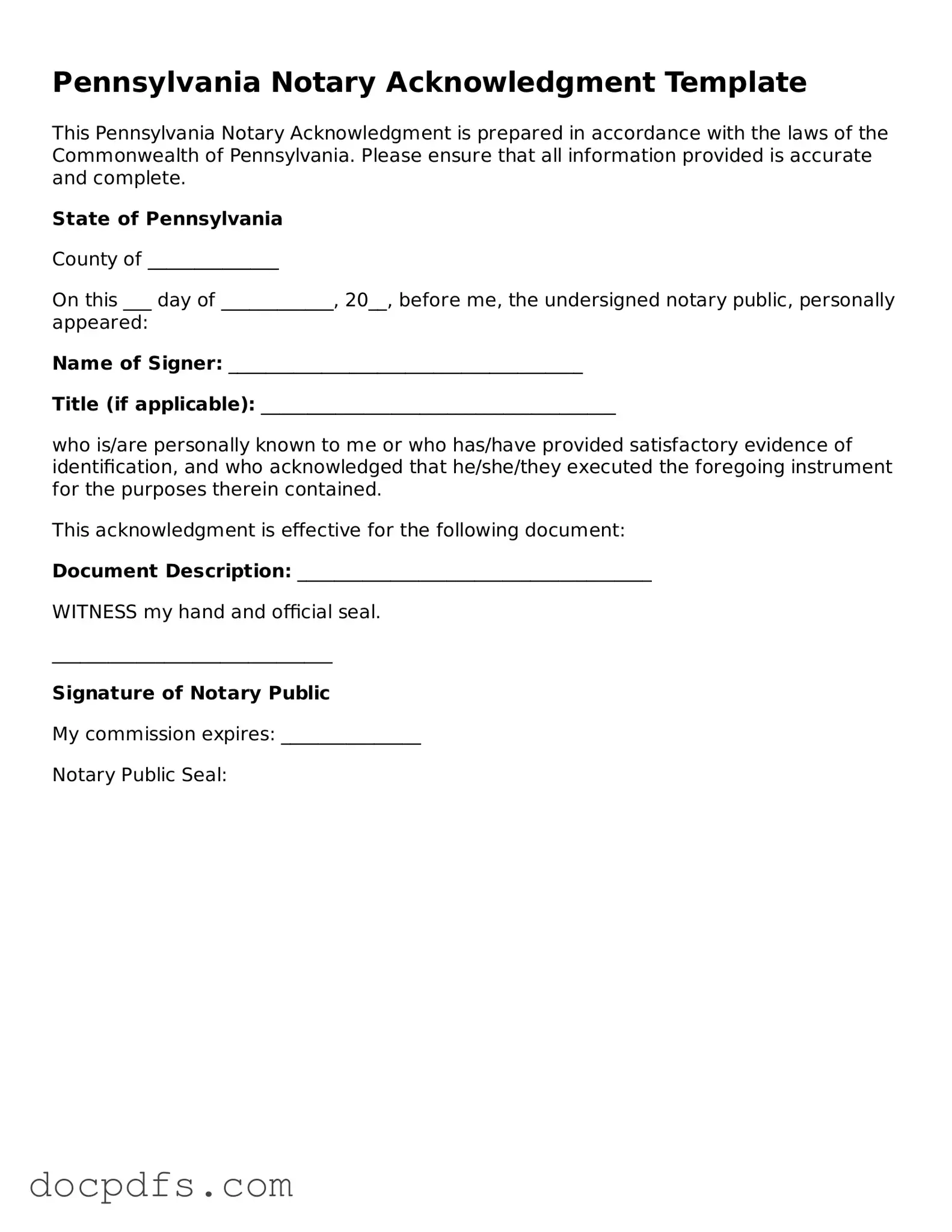The Pennsylvania Notary Acknowledgement form is a legal document that verifies the identity of a signer and confirms that they willingly signed a document. This form is essential in various transactions, as it provides assurance that the signature is genuine and that the signer understands the content of the document.
When is a Notary Acknowledgement required in Pennsylvania?
A Notary Acknowledgement is typically required when a document needs to be recorded, such as deeds, mortgages, or powers of attorney. While not every document requires notarization, having a Notary Acknowledgement can help prevent disputes regarding the authenticity of signatures.
To complete a Notary Acknowledgement form, follow these steps:
-
Ensure that the signer is present and has a valid form of identification.
-
Fill out the Notary Acknowledgement form with the necessary details, including the date, the name of the signer, and the type of document being acknowledged.
-
The signer should then sign the document in the presence of the notary.
-
The notary will complete the form by signing and sealing it, confirming the acknowledgment.
Can anyone act as a notary in Pennsylvania?
No, not everyone can act as a notary in Pennsylvania. To become a notary, individuals must meet specific requirements, including being at least 18 years old, a resident of Pennsylvania, and having a clean criminal record. They must also complete a notary training course and pass an exam.
What types of documents can be notarized with a Notary Acknowledgement?
A Notary Acknowledgement can be used for various types of documents, including:
-
Real estate deeds
-
Wills
-
Powers of attorney
-
Contracts
-
Affidavits
Is there a fee for notarization in Pennsylvania?
Yes, notaries in Pennsylvania can charge a fee for their services. The maximum fee is set by the state and can vary depending on the type of document and the services provided. It’s a good idea to ask about fees upfront to avoid surprises.
How long is a Notary Acknowledgement valid?
A Notary Acknowledgement does not have an expiration date; it remains valid as long as the document itself is valid. However, it’s essential to ensure that the document is used within a reasonable timeframe to avoid any issues related to its authenticity or relevance.
What should I do if I lose a notarized document?
If you lose a notarized document, it’s important to act quickly. First, try to obtain a copy of the document from the party who originally provided it. If that’s not possible, you may need to recreate the document and have it notarized again. In some cases, you might also consider filing a report with local authorities, especially if the document contained sensitive information.

